
Despite the cost-of-living crisis and the “tough economic downturn” caused by post-Covid-19 inflation, the retail industry remains resilient and willing to embrace opportunities amid challenging times, according to the chief executive of Co-op Shirine Khoury- Haq.
Speaking at the Association of Convenience Stores (ACS) conference this week, Khoury-Haq shared insights into the changes that the Co-op is witnessing in the UK grocery market and how it is adapting to take advantage of new opportunities.
She cited research from KPMG indicating that 41% of consumers reported feeling less financially secure at the beginning of 2024 compared to the beginning of 2023.
In light of this, she emphasised that “everyone is going to be fighting for share of wallet”, and she claimed that the industry must be as cost-effective as possible and source new ways to keep customers.
She highlighted the importance of loyalty schemes among smart and savvy consumers: “We’ve also seen that the rise of loyalty pricing over the past year has been huge. That’s something that started in the grocery store but has spread to other retailers. Many have multiple loyalty memberships to gain access to exclusive deals and discounts and personalisation is becoming an expectation. And what that’s doing actually is it’s driving more shopper loyalty. And whereas in previous times of high price inflation, consumers might have shopped around, we’re finding the loyalty schemes are actually making consumers more loyal to a single brand. And that is more than it has been previously.”
Khoury-Haq doesn’t want shopping conveniently to mean that consumers have to compromise on quality and price, and that’s why she announced that the Co-op has been investing in its own-label product development.
”Our focus for Co-op food, which Matt Hood our food managing director is passionate about, is our pure convenience strategy. The whole business continually drives to deliver a proposition which is tailored specifically for the convenience sector. There are shopping missions for shoppers looking for food on-the-go inspiration for tonight or simply looking to top up their bigger weekly shop. And at the heart of that strategy are our target customers and the four key things we all know that we need to get them right for them. The value, loyalty, range and reach.
“Our first priority has been our membership and our member-owners and as a consumer cooperative, we are owned by and we are run by our members.”
With the general elections creeping up, she urged the next party to gain power to address business rates. She claimed that the “system that is fundamentally broken and that absolutely needs to be rebalanced so that it protects those bricks and mortar businesses that are so important to communities across the UK.”
The Co-op has been advocating for reform for a long time, and they are not the only business calling for this, but “unfortunately the government has failed to address these issues even after a series of consultations,” she said.
Moreover, she recognised the concering rise in retail crime and the urgent need for action.
During her talk to attendees, she stated that “four of my colleagues will be attacked and a further 116 of my colleagues will be seriously abused”.
While it may not come as a surprising statistic to the retailer industry, she said last year incidents of shoplifting, abuse, violence and anti-social behavior in Co-op stores increased by 44% on the previous year, “which for us averages 1000 incidents every single day”.
“Our first consideration is the cost to the physical and mental well-being of our store colleagues who have to deal with this issue every single day and it really shouldn’t be part of their job. So keeping our colleagues is absolutely a priority, something that I won’t compromise on, and neither will my team. We’ve spent over £200 million in the past years on safety and security measures in our stores to fight retail crime”.
Khoury-Haq outlined the retail crime action plan announced last year by the government to ensure police attendance at incidents and that all evidence is collected so that every reasonable line of inquiry is followed.
However, she said that what the industry needs is to “see it in action in our stores when our colleagues make a desperate call for help, we need to know that the police are going to be there”.
She added: “There are great opportunities for the convenience sector and we should be optimistic about our businesses and we should be optimistic about the next few years. I believe that we will see the convenience sector flourish.”



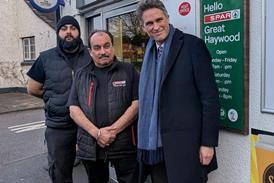
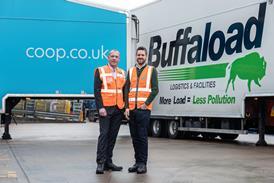







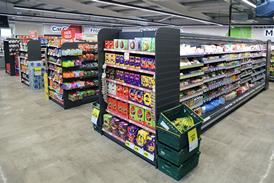








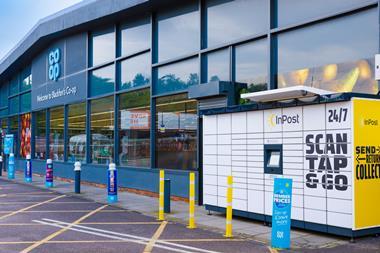
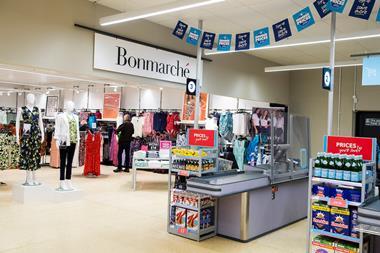
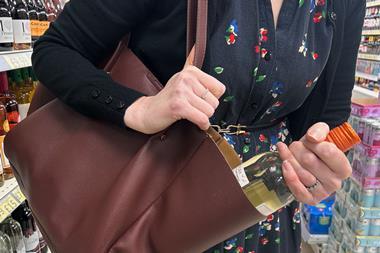





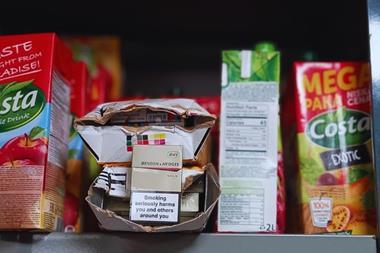


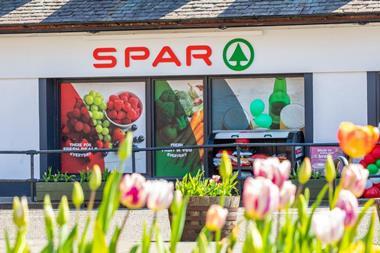
No comments yet